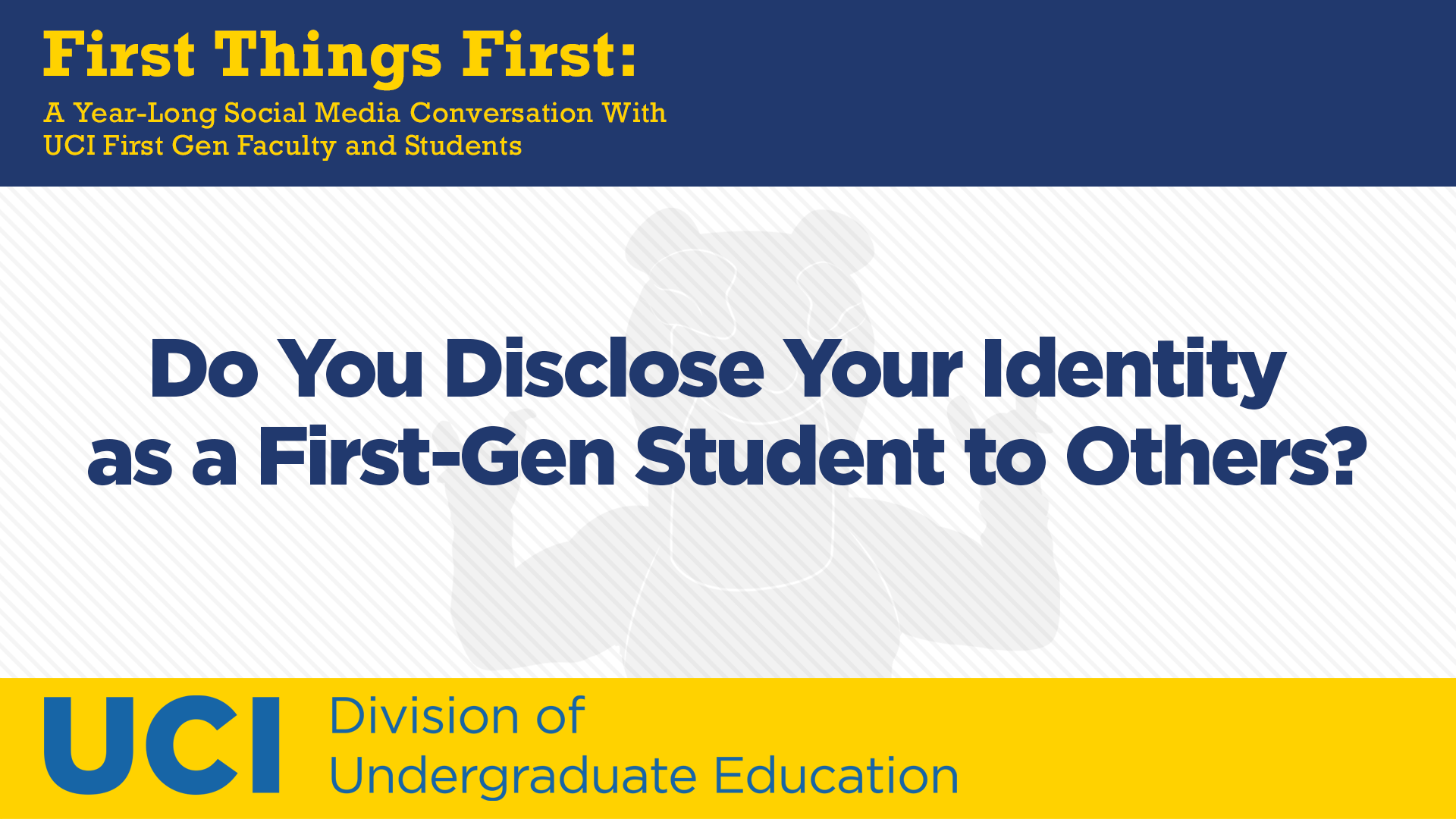
In this First Things First update, Gretta and Leon and their faculty mentors, Prof. Casavantes Bradford and Prof. Kadandale, respond to the question “Do You Disclose Your Identity as a First-Gen Student to Others?”
Gretta explains that, while she is proud to be a first-gen student, she doesn’t usually disclose her identity due to lack of opportunity. In contrast, Prof. Casavantes Bradford shares that when she was in college, being first-gen was a source of embarrassment for her. It was only as she got older and became a faculty member that she was able to embrace her first-gen identity.
In their exchange, both Leon and Prof. Kadandale shared that they didn’t immediately share their first-gen identity. Leon adds that she was more self-conscious about being first-gen when she was in high school and needed help applying for college. Prof. Kadandale explains that he started to share his experiences as a first-gen student as he realized it was an important way of connecting with others. Now, he immediately discloses his first-gen identity in hopes that his students feel more comfortable reaching out for support.
Gretta Ozuna
Gretta reveals that she is proud to identify as a first-generation college student. However, she also explains that she doesn’t usually disclose her first-gen identity simply because she isn’t given the opportunity to do so.
Prof. Casavantes Bradford Responds to Gretta
In response to Gretta, Prof. Casavantes Bradford shares that when she was a student, she was embarrassed by her family’s lack of education. She explains that being the first to attend college was an alienating experience because she felt that she couldn’t talk about her family. Once she became a faculty member, Prof. Casavantes Bradford realized that being first-gen was something to be proud of—now she is excited to share her identity and experiences with everyone.
[iframe width=”560″ height=”315″ src=”https://www.youtube.com/embed/videoseries?list=PLcjHXyh5ZkV2n3L7O8k-SNigzkFvdmhNk”]
Leon Masuda
Leon explains that despite being proud, she doesn’t really disclose her first-gen identity. However, she is grateful for all the support that she and other first-gen students receive at UCI through programs like Summer Bridge and TRIO Scholars. She also admits that she used to be a little embarrassed of her first-gen status in high school when she was applying for college and she didn’t have the same knowledge or insight as her classmates.
Prof. Kadandale Responds to Leon
Recounting his own experience in college, Prof. Kadandale explains that he used to not disclose his first-gen identity because he didn’t think it was important. However, he came to realize that sharing his stories was important for connecting with others who had similar experiences. Now, he immediately identifies himself as first-gen so students feel more comfortable reaching out to him for support.
[iframe width=”560″ height=”315″ src=”https://www.youtube.com/embed/videoseries?list=PLcjHXyh5ZkV0wWiqKmesW2nNdfZic4i-X”]
The First Things First project is an evolution of UCI’s First-Generation Faculty Initiative, designed to help first-gen students overcome the challenges brought about by the pandemic. This new “virtual” mentorship program pairs two incoming UCI first-gen students with first-gen faculty members for a year-long, social-media-distributed conversation about the transition to university life. The goal of First Things First is to help UCI’s entire first-gen population, as well as first-gen students throughout higher education, build a sense of community—even in this remote college environment. To further this project, we invite you to share this article on your social media channels and with your network.
